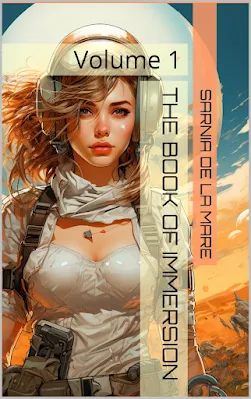Reading in the Age of AI: Habits, Impact, and the Future for Authors
In a world increasingly shaped by algorithms and digital interfaces, the way we read—and what we read—is undergoing a profound transformation. From scrolling news on smart devices to listening to AI-narrated audiobooks, global reading habits are shifting rapidly. As artificial intelligence permeates both the creation and consumption of literature, it’s vital to ask: how is AI affecting our engagement with fiction and non-fiction? And what does this mean for authors, readers, and the future of storytelling?
📚 The Changing Landscape of Global Reading Habits
Traditionally, reading was an immersive, linear experience. With a book in hand, readers gave undivided attention to a story or subject. Today, reading is often fragmented across screens, snippets, and summaries. In many parts of the world—especially in urbanized, tech-heavy societies—people consume shorter content with greater frequency but less depth. AI tools like personalized content recommenders, chat-based summaries, and audiobooks have contributed to this shift.
However, in contrast, regions with limited access to physical books are using AI-powered translation and text-to-speech tools to improve literacy and make books more accessible. Platforms like Google Books, Project Gutenberg, and AI-assisted educational apps have globalized access to reading material.
🤖 AI’s Influence on Fiction and Non-Fiction Engagement
Fiction
-
Positive Impact: AI has made fiction more accessible through adaptive audiobooks, immersive storytelling apps, and even co-written novels. AI-assisted tools help readers discover new authors and genres they might have missed, and some AIs can even generate interactive fiction tailored to personal preferences.
-
Negative Impact: As generative AI begins producing its own fiction, concerns arise about authenticity, originality, and the value of human creativity. There's a flood of AI-generated novels on self-publishing platforms, which can dilute the visibility of human authors. Some worry that emotional nuance and lived experience—a hallmark of great literature—are at risk of being overshadowed by algorithmic mimicry.
Non-Fiction
-
Positive Impact: AI tools have empowered readers to digest complex material through summarization, visualization, and real-time explanations. From students to professionals, people are reading more educational content with AI as a guide.
-
Negative Impact: Relying on AI-generated summaries or chatbot answers can discourage deep reading and critical thinking. Inaccurate or biased content produced by unvetted AI models can also spread misinformation, especially in historical, political, or scientific non-fiction.
✍️ How Authors Can Use AI
AI offers valuable tools for writers of every genre:
-
Editing and Proofreading: Tools like Grammarly and Hemingway help polish manuscripts with ease.
-
Idea Generation: AI prompts and writing assistants can help break writer’s block.
-
Market Insights: Data analysis tools identify trends in genre, style, and audience behavior, helping authors shape content and marketing strategies.
-
Translation and Accessibility: AI translation tools open up new markets, while text-to-speech and screen readers enhance inclusivity.
-
Co-Writing and Research: Authors can use AI to generate outlines, character sketches, or synthesize background information quickly.
Some writers even collaborate with AI as a creative partner, experimenting with hybrid texts that question the boundaries between human and machine.
⚠️ Challenges and Ethical Concerns for Writers and Readers
-
Plagiarism & Originality: AI can unknowingly mimic existing works, creating copyright and ethical issues for human authors.
-
Over-Saturation: With the ease of producing content, platforms risk becoming flooded with low-quality or purely AI-generated texts, making it harder for original voices to stand out.
-
Creative Devaluation: When consumers can't tell the difference between human-authored and machine-generated work, the perceived value of literary labor may decline.
-
Dependence and Homogenization: Authors relying too heavily on AI tools may lose their unique voice, resulting in writing that conforms to algorithmic “norms” rather than challenging or innovating them.
-
Reader Disengagement: With AI summarization and bite-sized content, deep engagement with long-form reading may diminish, altering how stories are absorbed and appreciated.
🌍 A Call for Balance and Literacy
The intersection of AI and literature is still evolving. What’s clear is that neither writers nor readers can afford to ignore the shift. Digital and AI literacy—understanding how content is created, curated, and consumed—is now as vital as traditional literacy.
AI is not the enemy of literature—it’s a powerful tool. But like any tool, it must be used with care, creativity, and awareness of its limitations. For readers, this means choosing when to dive deep versus when to skim. For writers, it’s about preserving the human essence while exploring new possibilities.
In Summary:
Reading and writing are changing, not disappearing. The challenge—and opportunity—for authors and readers alike is to navigate this new terrain with intentionality. The future of storytelling belongs to those who embrace both tradition and innovation, carving out space for human imagination in an increasingly automated world.




















